| |  | | | Defeating the Houthis; The Latest on Iran By Winfield Myers ● Oct 03, 2025 Smart Brevity® count: 8.5 mins...2306 words In two articles, Michael Rubin spells out how the U.S. and its allies can defeat the Houthi terrorists in Yemen, beginning with advice to the Internationally-Recognized Government to abandon their haunts in Saudi Arabia and try living and working in Yemen for a change. He also calls on the West to step up its aid to the Southern Transitional Council by giving them military drones with which to fight. Khaled Alyemany and Fernando Carvajal offer additional insights into the complex situation in Yemen and, it now appears, coastal Sudan. We follow with six articles examining the state of Iran's regime, Supreme Leader Khamenei and his powerful son Mojtaba, United Nations sanctions, and the worsening water crisis across the country. Authors include Michael Rubin, Shay Khatiri, Mardo Soghom, Dalga Khatinoglu, and Armand Mostofi. | | To Defeat the Houthis, Yemen's Government Must Return to Yemen 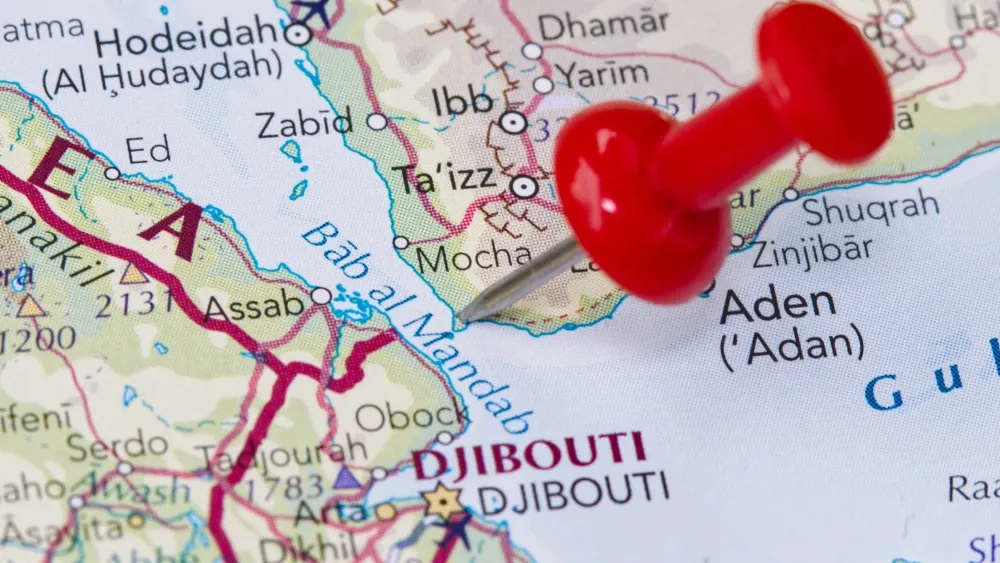 By: Michael Rubin The international community's shallow support for Yemen's government is evident as embassies remain in Saudi Arabia, not Yemen. Why it matters: The absence of Yemen's leaders from their homeland erodes their legitimacy. The backdrop: Key figures like Rashad al-Alimi, chair of the Presidential Leadership Council, reside in Saudi Arabia, with others in Egypt and the United Arab Emirates (UAE). -
As the dysfunctional Presidential Leadership Council heads toward reform, it is crucial to ensure the northern politicians live in Yemen for the sake of their legitimacy and the council's. -
Politicians might hold consultations in Riyadh or Abu Dhabi, but they should not remain there for more than a day or two. What's next: The Houthis have been a scourge on Yemen for long enough. Just as earlier generations resisted Zaydi efforts to impose themselves upon the entire country, it is time for the current generation to push the Houthis back to Sa'dah and to capture and try for murder their Islamic Revolutionary Guard Corps and Hezbollah advisors. -
Until Alimi and Megali realize their home country is Yemen and not Saudi Arabia, and until Al-Arada realizes an ambition greater than Marib's warlord, the northerners will fail. -
Yemeni politicians must govern from Mocha to symbolize true investment in their country. Its proximity to Hodeidah is crucial for reclaiming territory from Iranian-backed insurgents and demonstrating governance capability. To read the full article, click here. | | Want to Defeat the Houthis? Here's How to Do It 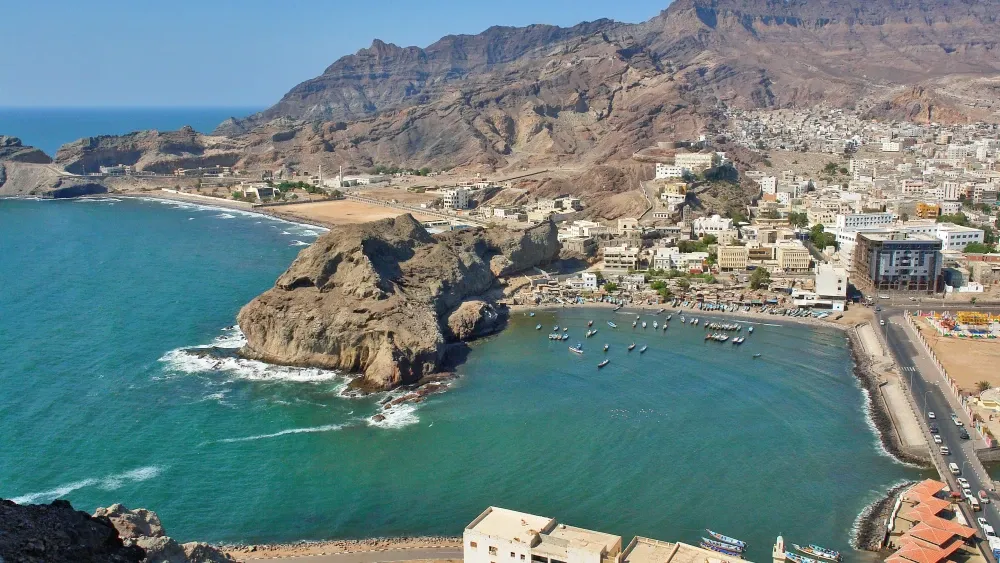 By: Michael Rubin Rashad al-Alimi, chairman of Yemen's Presidential Leadership Council, used his United Nations speech to warn that the "Houthis are only getting stronger," highlighting a critical juncture for Yemen's future. Why it matters: The international community's reluctance to provide drones to fight the Houthis severely hampers Yemen's defense efforts, creating a dangerous imbalance. The stakes: Saudi Arabia's appeasement tactics and internal conflicts within Yemen's leadership exacerbate the region's instability. The Houthis' boldness is evident as their drones breach southern Yemeni airspace with impunity. What's next: Establishing a U.S. base in Aden, much like those in Iraq and Qatar, could solidify regional stability and enforce a robust stance against the Houthi threat. Also needed are drones and drone defense. Peace comes not from signing ceremonies, but from preparation and denying oxygen to adversaries. To read the full article, click here. | | Yemen's Southern Leader Aidarus al-Zoubaidi Makes His Move 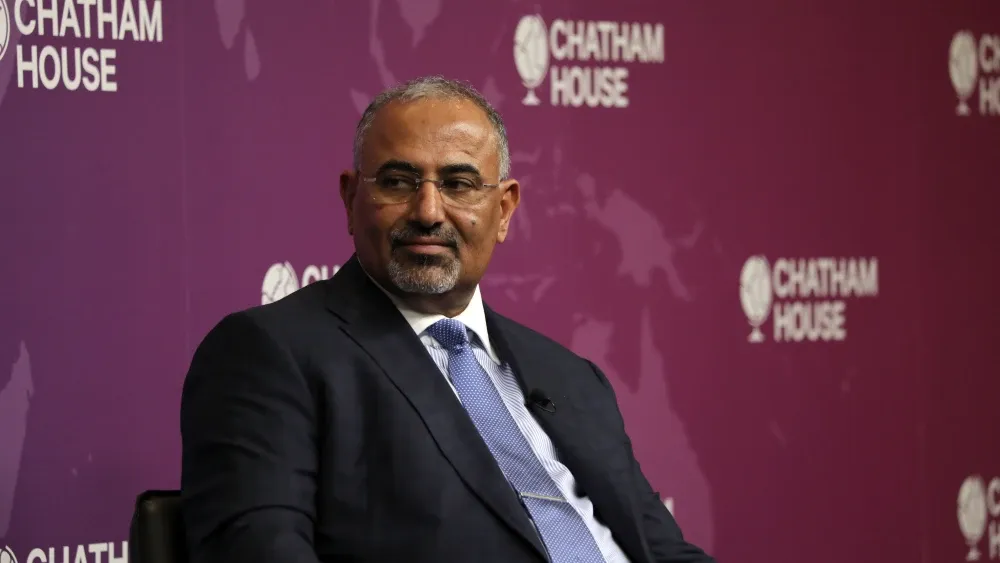 By: Khaled Alyemany The reshaping of Yemen's balance of power is now a critical juncture as Aidarus al-Zoubaidi, president of the Southern Transitional Council, challenges the norms of the Presidential Leadership Council. Why it matters: Al-Zoubaidi's appointments within the internationally recognized government highlight the fragility of the council and its inability to manage internal rifts. The stakes: Internal discord within the Presidential Leadership Council provides an advantage to the Houthis, who continue to strengthen their military capabilities through foreign alliances. What's next: Al-Zoubaidi's move underscores the urgent need for the council to adopt a binding operational mechanism, transforming the founding text into actionable governance. To read the full article, click here. | | Houthi Expansion Into Sudan Threatens a Wider Conflict 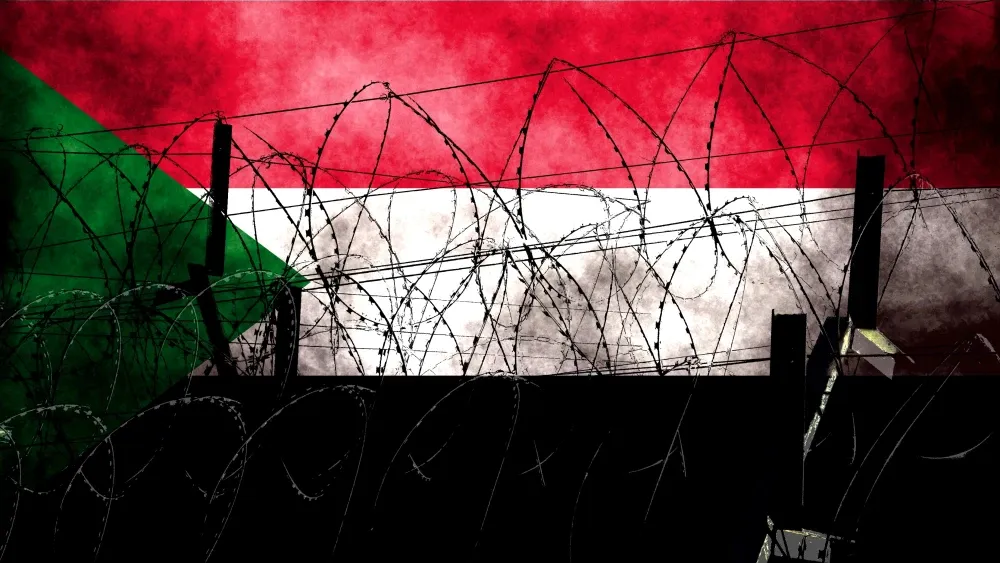 By: Fernando Carvajal Nearly five months following a unilateral ceasefire declared by President Donald Trump to stop the bombing of the Sana'a-based Houthi rebels in exchange for an end to attacks on U.S. ships, Iran-backed Houthi rebels continue to threaten the flow of civilian commercial vessels along the Red Sea. Why it matters: The Houthis' strikes near Yanbu and the establishment of a foothold along Sudan's coastline enhance their capabilities, posing a significant threat to maritime security. The stakes: The merging conflicts in Sudan and Yemen are spilling beyond traditional areas, complicating efforts to contain Houthi aggression. -
Evidence of Iranian drone and missile transfers to Sudan heightens the risk of Houthi access to advanced weaponry. -
Use of Sudan's coastline would allow the Houthis, and Iran, to deflect attention from battered Houthi areas in Hodeidah and Sana'a. What's next: As the Houthis expand operations, the international community must reassess its approach to counter their growing maritime threat. To read the full article, click here. | | 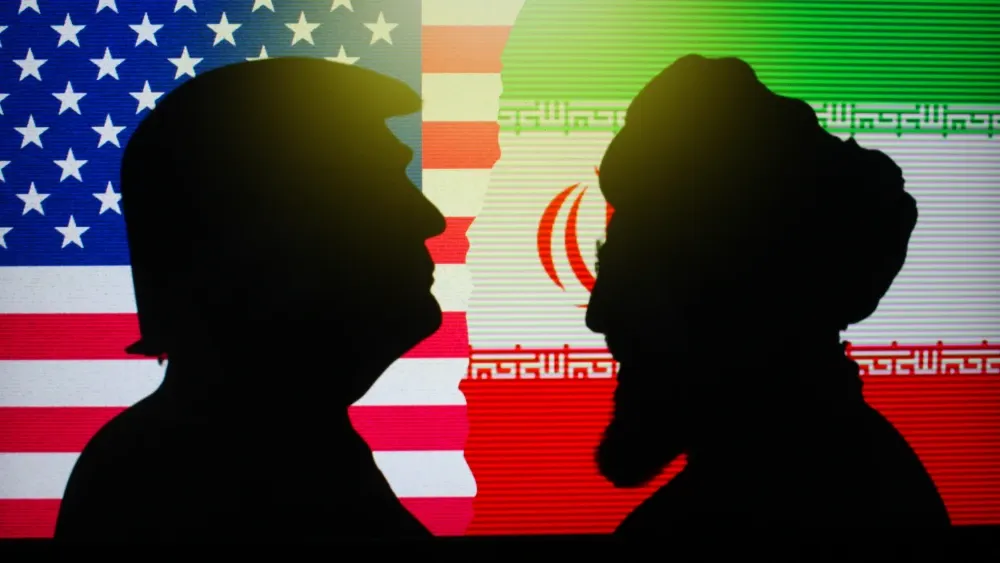 By: Michael Rubin Iranian Supreme Leader Ali Khamenei just does not get it. He misreads Trump's stance, thinking he can drag negotiations endlessly, but Trump demands decisive action on Iran's nuclear program. Why it matters: Khamenei's miscalculation stems from seeing Western diplomatic virtue signaling and lack of Iranian uprising as strengths, while overlooking potential targeted action against his regime. -
Attacking Khamenei's son, Mojtaba, could disrupt the regime's operations, as he manages the supreme leader's offices and handles sensitive regime functions. The stakes: Mojtaba's control extends to Iran's nuclear and missile programs, liaison with proxies, and the supreme leader's financial empire. What's next: The U.S. or Israel should consider targeting Mojtaba to weaken the regime without creating a power vacuum, a strategy legally permissible under international law. To read the full article, click here. | | Khamenei's Misguided Triumphalism 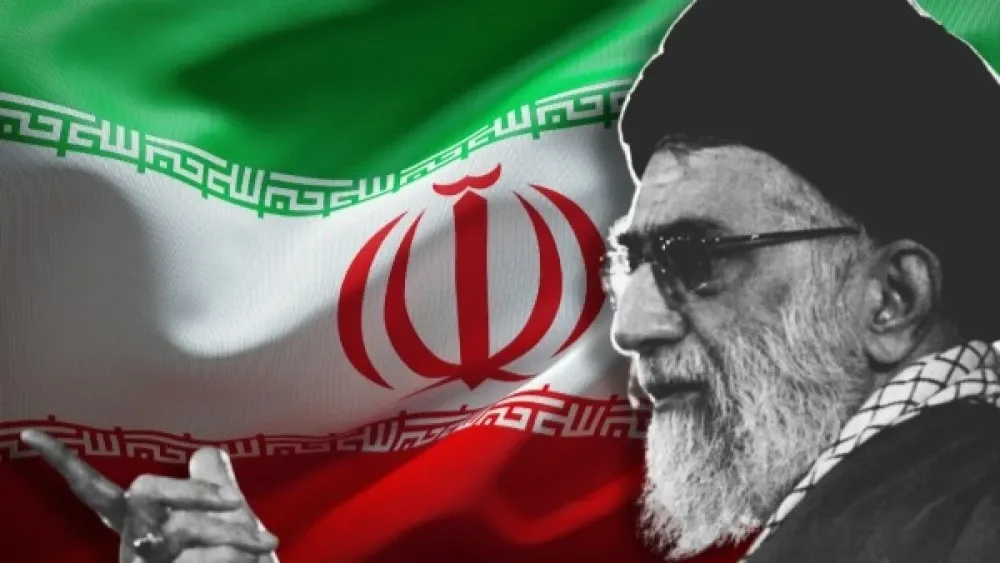 By: Shay Khatiri Iranian Supreme Leader Ali Khamenei, in his September 23 address, exuded defiance against foreign pressures while basking in triumphalism. Why it matters: Khamenei's confidence stems from Iran's internal stability during the Twelve-Day War, despite external challenges. -
His belief in regime security emboldens Iran's nuclear and missile ambitions, undeterred by calls for compromise. -
As Ari Cicurel, an expert at the Jewish Institute for National Security of America, detailed, however, in the last days of the war, "Iran adapted with more sophisticated and frequent strikes, causing more damage in Israel, straining Israeli and U.S. interceptor stockpiles, and leaving Israel to heavily rely upon U.S. air defense support." The stakes: The calm Khamenei ascribes to unity is actually a symptom of disorganization, lack of leadership, and fear of initiative. -
This is a theme in totalitarian societies, but it is also ingrained in the Iranian national character. Inside Iran, the government imprisons the few individuals who could become movement leaders. In the diaspora, there is no leadership. -
Khamenei's speech is proof that he is too confident of his survival to abandon his nuclear and conventional ambitions; he simply does not have to. The only threats that could convince Khamenei to change his mind are to his regime or to his life. What's next: Israel must decide between treating symptoms or addressing the root causes of Iran's ambitions. To read the full article, click here. | | Khamenei's Speech Exposes an Aging Ruler, Looming Sanctions, and No Escape 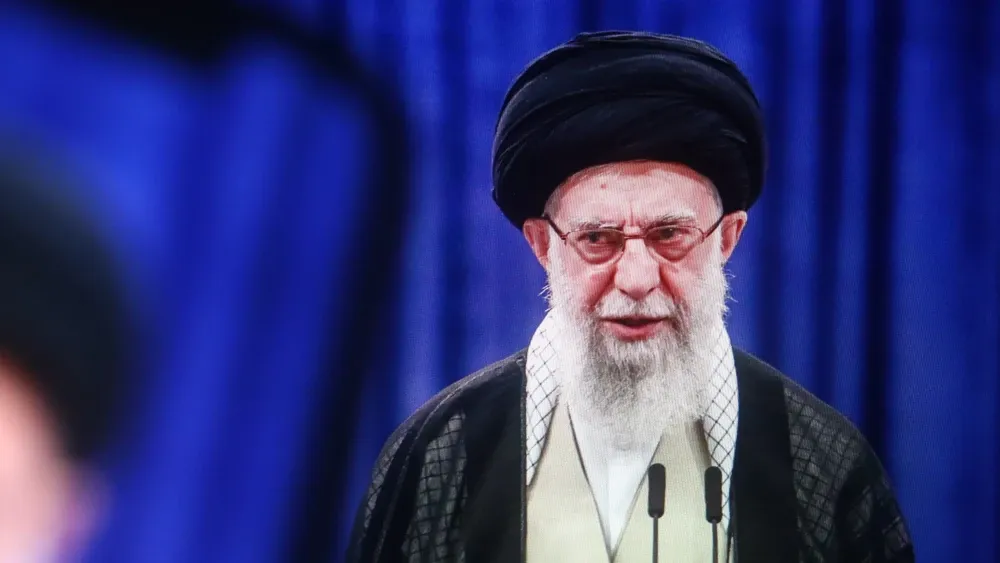 By: Mardo Soghom On September 23, 2025, Iran's Supreme Leader Ali Khamenei rejected U.S. demands to end Iran's nuclear program, creating anxiety about sanctions and Israeli attacks. Why it matters: Khamenei's defiance highlights a regime cornered by international pressure, struggling to maintain its grip amid internal dissatisfaction. The stakes: Khamenei's frailty and age expose Iran's leadership to vulnerabilities, as many Iranians express disillusionment with his stagnant governance. What's next: Khamenei's refusal to adapt or negotiate underscores a leadership teetering on the brink of irrelevance. -
Perhaps an Iranian influencer on X captured the essence of Iran's predicament best: "Khamenei is visibly frail—a leader at the edge of death, with no time left for mistakes, reversals, or new directions. He is a leader without a future, and many inside the regime also know it." To read the full article, click here. | | Khamenei Gambles on Survival as U.N. Sanctions Loom 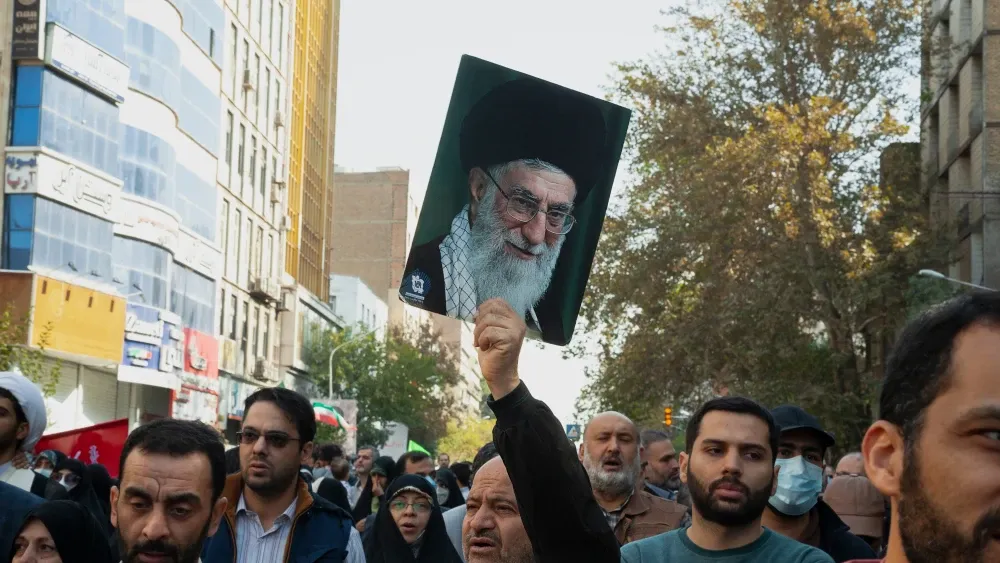 By: Mardo Soghom Iran faces a staggering 75 percent annual inflation rate and a three percent GDP decline as re-imposed United Nations sanctions loom, intensifying the economic crisis. Why it matters: Supreme Leader Ali Khamenei's resistance to Western concessions risks plunging Iran deeper into economic turmoil, with potential civil unrest simmering beneath the surface. The stakes: Hardliners dismiss U.N. sanctions' impact, but the financial sector faces severe threats as Asian and Middle Eastern facilitators reconsider engagements. What's next: But as a Persian proverb warns, what one calculates at home does not always work in the bazaar. Khamenei's strategy is nothing less than a gamble. -
At 86, Khamenei may not outlive the Trump presidency, and popular unrest could erupt at any moment. Such events in authoritarian systems are inherently unpredictable. -
Under heavier sanctions, the regime may gradually lose its grip on the country, with dissent spreading steadily even without a single major uprising. To read the full article, click here. | | The Water Shortage Has Become Iran's Greatest Crisis 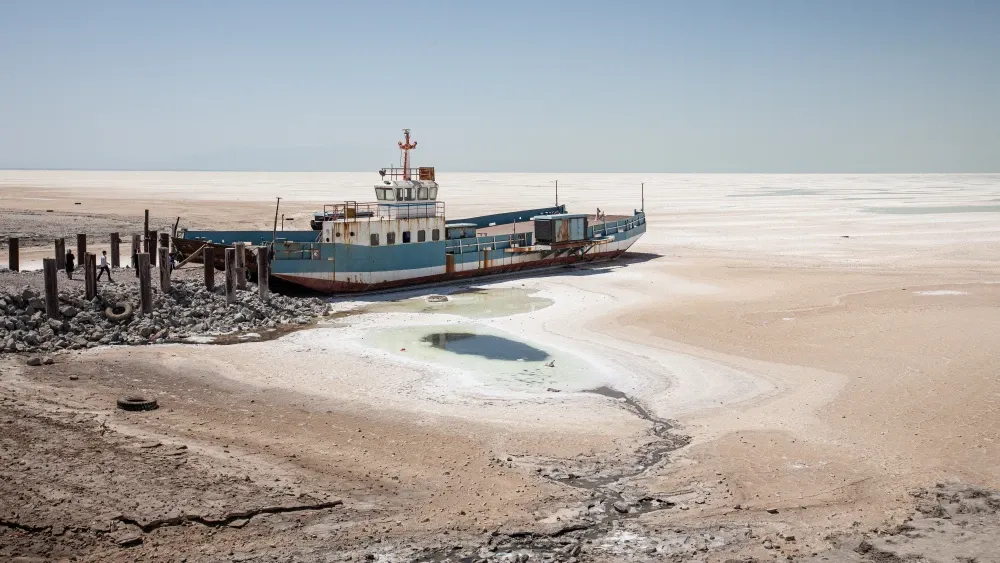 By: Dalga Khatinoglu Iran is facing multiple crises—an energy shortfall, financial instability, and environmental degradation—but Iran's own statistics suggest the water crisis has escalated to Iran's greatest due to the simultaneous depletion of surface and groundwater resources. Why it matters: Lake Urmia, the second-largest saltwater lake, has dried up, and twelve of Iran's dams are empty, leading to widespread water rationing. The stakes: Iran ranks first in regional and fifth globally for groundwater depletion, extracting 57 billion cubic meters annually. What's next: Israeli Prime Minister Benjamin Netanyahu offered advanced water technology and expertise once Iran is free, highlighting the regime's failures. -
As their faucets run dry, Iranians would be right to ask whether they suffer more for their leaders' antagonism toward Israel, especially given the example of so many other countries in Africa and now the Middle East that take advantage of Israeli expertise. To read the full article, click here. | | The Rise and Fall of Iranian Pro-Palestinian Sentiment 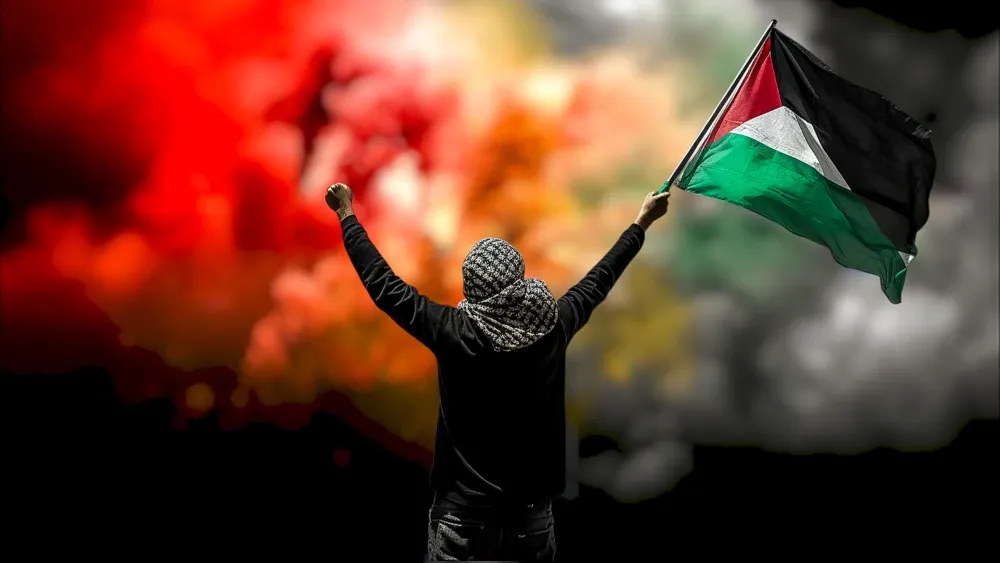 By: Armand Mostofi In the aftermath of the October 7, 2023, attacks, the regime attempted to stage pro-Hamas rallies, but participation was limited to its loyalists and Basij militiamen. The broader public was openly hostile toward Hamas. Why it matters: Iran's financial and military backing of Hamas and other groups has cost the nation over $2 trillion, fueling domestic resentment. The stakes: Tehran's sustained support for Hamas and Hezbollah has drained national resources, weakening Iran's economy amid sanctions. What's next: Over forty-five years of Islamic rule, Iranian public opinion has shifted dramatically—from indifference to Palestine, toward support for Israel. To read the full article, click here. | | | | | We appreciate your continued support for the Middle East Forum as we deliver critical analyses on Middle Eastern affairs. If you found this edition of the Dispatch useful, please share it with others and be sure to let us know your thoughts on our coverage via the comments feature. Sincerely, Winfield Myers
Managing Editor, Middle East Forum
Director, Campus Watch | | | | Was this edition useful?  

Your email will be recorded and shared with the sender |        MEF, an activist think tank, deals with the Middle East, Islamism, U.S. foreign policy, and related topics, urging bold measures to protect Americans and their allies. Pursuing its goals via intellectual and operational means, the Forum recurrently has policy ideas adopted by the U.S. government.
Copyright © 2024 Middle East Forum, All rights reserved.
Our mailing address is:
Middle East Forum
1650 Market Street, Suite 3600
Philadelphia, PA 19103 | | | | | Powered by 
| | This email was sent by Middle East Forum via Axios HQ | | | |
0 коммент.:
Отправить комментарий